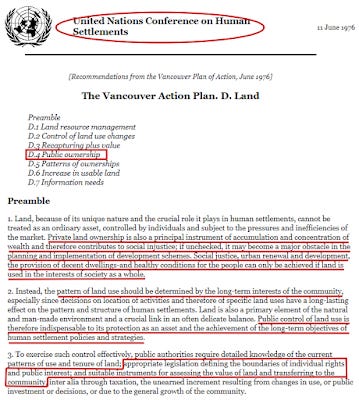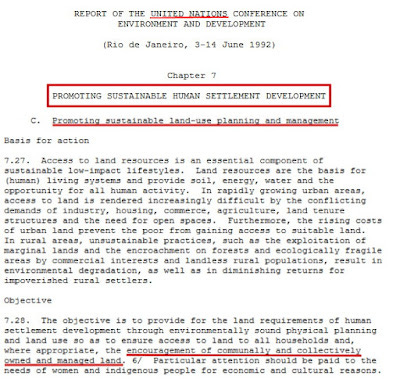Forsyth Should Not Yield to Unreasonable Demands
Last week I wrote concerning on a “listening session” I attended, one organized by the Forsyth County Department of Planning and Development. At that meeting I learned that Forsyth County plans to assume veto power over what buyers, builders, private developers and HOA’s all agree is acceptable and desirable in zoning categories RES2, 3 and 4. The county plans to create a set of mandatory residential design standards for the entire county and impose them on new developments. After the article published, I received some noteworthy comments, which I would like to address below.
One county commissioner responded,
“it’s what citizens and the Coalition have been demanding for years…This was THE topic most citizens demanded.”
That may be true; but an overwhelming majority of 200,000 Forsyth citizens were never polled about the government takeover, as if polling would matter anyway. Presumably, the county could hold meetings on what restaurant owners should place on their menus, and people would show up for those meetings and give their opinions. Some people might even make demands. Still, none of those opinions or demands would matter. That is because those people do not own the restaurants, have not made the investments and are not at risk. And most citizens would agree; the premise of such a meeting would be beyond any reasonable scope of constitutional government anyway.

Sometimes Citizen Demands are Unreasonable
Likewise, when the government asserts a right to control how private property owners use and enjoy their land, above and beyond the need for public safety and well-being, and above the need to protect property values of other property owners, that government claims communal and collective ownership and a right to manage private property that does not exist. The only way the government may justifiably claim such a right is to follow due process. That means take the owner to court, identify some grounds and make a case. Other than that, the municipality would operate contrary to the 5th Amendment to the US Constitution.
By encouraging Forsyth County to establish residential design standards that extend beyond the right-of-way lines, and beyond the control of zoned lot sizes, setbacks and beyond generally protecting the values of nearby properties, without due process, the county planners also urge the Board of Commissioners to violate the US Constitution. Life, liberty and property are sacred elements of a free society cited in its Preamble. The purpose of that document is predicated on the presumption that government, at all levels, will hold private property rights supreme unless due process can show a proper cause. The 5th amendment protects us all, even if we wish others would act differently.
Last week, I also mentioned the influence of United Nations Agenda 21, also known as “Sustainable Development,” generally organized around America under the name "Smart Growth," pushing the purpose of county-wide residential design standards. A poster called me on that, stating,
“One World Order trying to creep into Forsyth County, mention UN and I think, Unadulterated BS. “

UN Goals to Take Over Private Property Right (1976)
I am glad the poster brought this up. That’s because, not only is this UN agenda here in Forsyth County, but it is all over the country, and the world. We must be aware and combat it. Bill Clinton established the "President’s Council on Sustainable Development" in 1992. By the end of Clinton's 2nd term, the goals of the PCSD were adopted throughout every administrative office executing domestic policy and issuing domestic regulations in US Government. Clinton Commerce Secretary Ron Brown remarked at the first PCSD meeting, "The Department of Commerce is the Department of Sustainable Development." Those policies grew under Bush and Obama. Colleges have now trained a generation of planners to adopt sustainable development as the overriding criteria by which to plan for growth. Now, thankfully, President Trump is paring those regulations back, a generation of work, however, necessary to be undone, and a generation of urban planners trained in sustainability, only in mid-career.

Source Document on UN Agenda 21 Sustainable Development Initiative
Agenda 21 policies gain traction through HUD Community Development Block Grants (CDBG's). If state and local governments take those funds, they must adopt sustainable development goals, methods, policies and regulations.
In 2016, to the credit of the Forsyth County Commission, responding largely to research provided by citizen Greg Dolezal, the commissioners turned down a $770k CDBG. Had they taken those funds, life and development in Forsyth County would have been irrevocably altered. Sustainable development policy concerns would have been overriding determinations in practically every planning activity, mandated by the force of federal regulation. In turning down the grant money, Forsyth County dodged a serious bullet.
So the question remains, how might Forsyth County work to maintain quality residential construction, consideration for tree conservation, moderate the pace of growth, provide timely traffic improvements, protect property values and respect property rights at the same time? Answer: Approve only zonings requiring larger lots, which, thankfully, this commission is moving to. That’s it. Larger lots mean higher lot prices. Larger lots mean that more trees can be left on each building site. Building on larger lots historically requires that homes will be more substantial, larger and better quality, thus limiting the market of potential buyers. That means the rate of growth would moderate, property values would enhance, trees kept intact and traffic more manageable, all without having to step outside of constitutional protections of the 5th Amendment by enforcing an unworkable set of architectural guidelines on buyers, builders and developers. Instead, Forsyth County would maintain a much more orderly and value-elevating pattern of growth.



